
Interview on Unherd: On State Department Censorship and Blacklisting
by Matt Taibbi | Sep 19, 2024
Last Friday, Josh Christenson at the New York Post published “State Department tried to discredit reporters, Republican pol over conservative ‘blacklist.’” The article described an internal memo showing the State Department strategizing public relations responses to the Washington Examiner’s Gabe Kaminsky, me, and Republican congressman Jim Banks.
The memo criticizes Banks in an extremely devious way. The Indiana Republican last February was quoted by Gabe in the Examiner saying the Biden administration appeared to be “knee deep” in efforts to “crack down” on speech.
The State Department memo listed the Banks quote among its list of criticisms to answer. However, the agency didn’t quote the Examiner. It claimed to be quoting the Russian news agency RIA-Novosti, giving the impression that Banks offered his criticism of Biden in Russian state media:
But Banks never spoke to RIA-Novosti, or any Russian agency. His quotes only appear in wholesale Russian translations (read: thefts) of Gabe’s Examiner article. The State Department and its counter-messaging arm, the Global Engagement Center, wanted so badly to create the impression Banks acted in service of Russian propaganda that they forgot to use the original Banks quote, instead re-translating the Russian version back to English. This resulted in the quote being reproduced incorrectly, ironic given GEC’s ostensible mission.
A miffed Banks just responded with a letter to Secretary of State Anthony Blinken. “The State Department, in defense of its domestic so-called ‘disinformation’ operation, purposefully spread disinformation about a U.S. lawmaker,” he wrote, adding that “this is a sloppy and hypocritical lie and it is typical of the Biden-Harris State Department’s repeated attacks on the First Amendment.”
In the video above, Gabe and I discuss this incident and our respective reports on the Global Engagement with Emily Jashinsky of Unherd. As noted yesterday, Unherd was downgraded by the GEC-funded Global Disinformation Index, which scores the riskiness of media outlets for advertisers. Unherd’s stance that men cannot be women and vice versa triggered its rating, as GDI explained: “Our team re-reviewed the domain, the rating will not change as it continues to have anti-LGBTQI+ narratives… The site authors have been called out for being anti-trans.”
The State Department memo contains provably silly lines like “The Global Engagement Center does not fund programs in the United States” and “GEC does not and has never attempted to moderate content on social media platforms.” The modus operandi of GEC was to send reports, spreadsheets, even long Microsoft Word lists of hundreds or thousands of accounts it claimed were “inauthentic” or promoted “state-funded propaganda.” Then it would write something like, “For your situational awareness,” as if that made communications something other than removal requests:
The memo also claimed evidence about censorship in the Twitter Files was often “inferred, or presented out of context.” In one section, GEC seemed upset that Elon Musk tweeted, after a Twitter Files story about a list of alleged China-linked accounts: “US govt agency demanded suspension of 250k accounts, including journalists & Canadian officials!”
The 250,000 number didn’t come from me, but from a State Department spokesperson talking to CNN:
With regard to Gabe’s reporting on GEC funding of GDI, the UK-based agency that downranked American media sites like the New York Post and Reason for advertisers, State claimed Examiner reports were wrong, saying GEC “did not fund GDI to study, analyze or report on social media platforms or accounts inside the United States.” What they meant was, “We didn’t fund GDI directly.” GDI was a sub-awardee, getting its $100,000 via a $6 million GEC grant to a contractor called Park Advisors.
GEC might have gotten away with its denial, Scooby-Doo villain-style, if not for meddling kids in the House Committee on Small Business. For a just-released report titled “Small Business: Instruments and Casualties of the Censorship-Industrial Complex,” committee staffers obtained sub-awardee information about Park Advisors, which was one of just three GEC contractors made public in an Inspector General report from April 2020. Minus the Committee’s work, we’d never have known a single “Park Advisors” entry masked a dozen sub-awardees, including GDI:
The GEC memo matters because it shows the State Department’s efforts to tie domestic critics to foreign influence (remember, Gabe reported that a State official also briefed House staffers about my Russian past), its extraordinary willingness/eagerness to lie even about basic things, and its desperation to conceal almost everything about its work from voters and Congress alike. Thanks to Emily and Gabe for a chance to talk about that organization, whose activites otherwise remain almost completely unknown to the public.


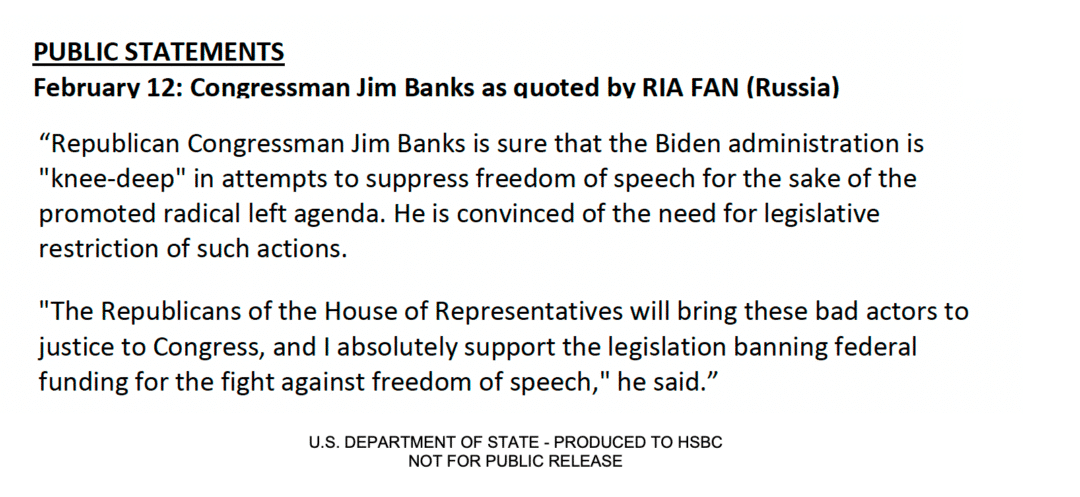
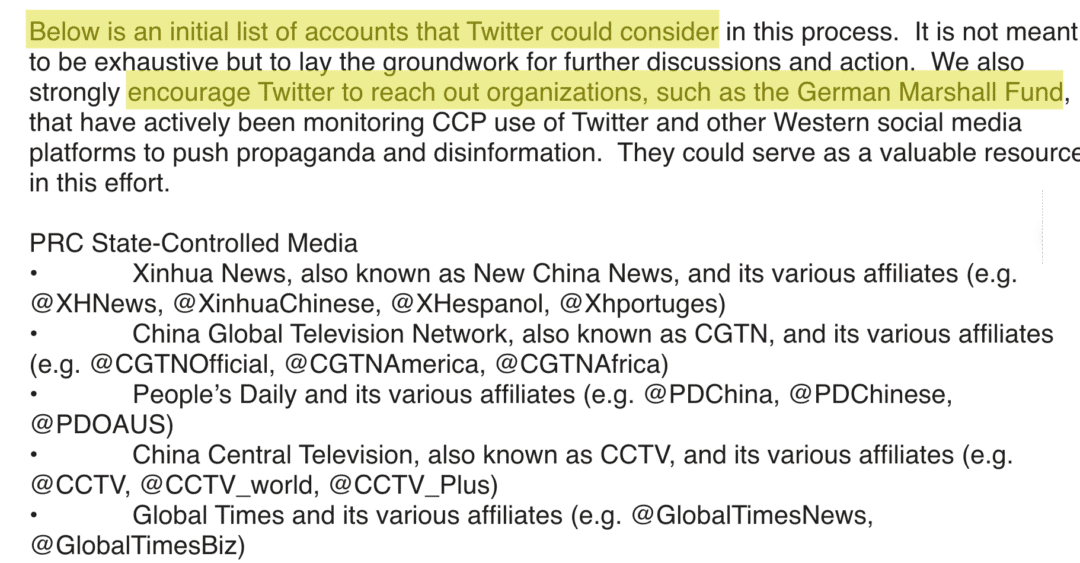

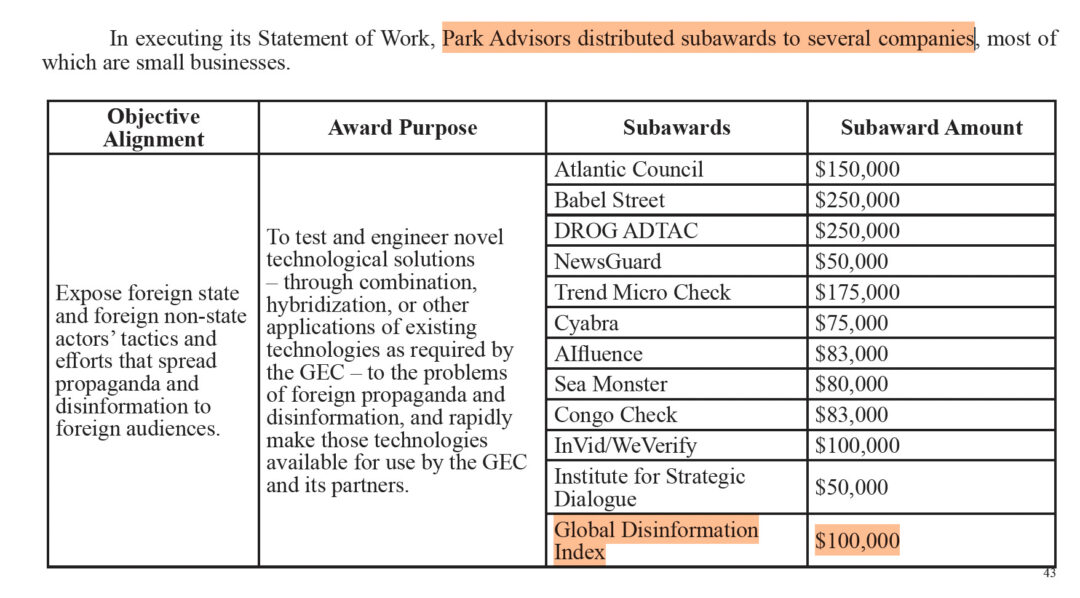
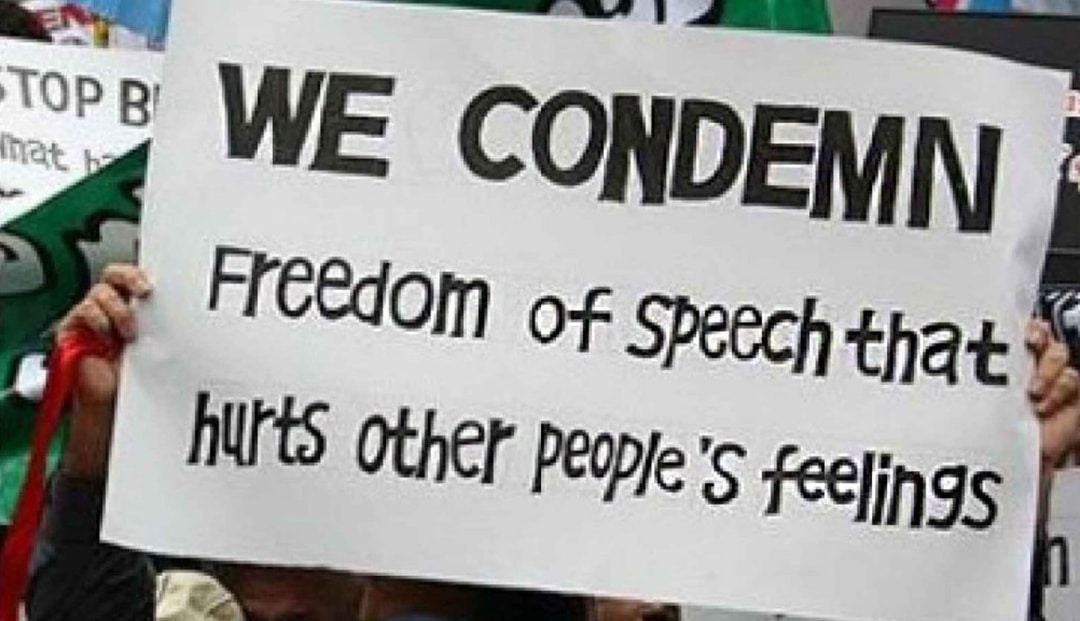

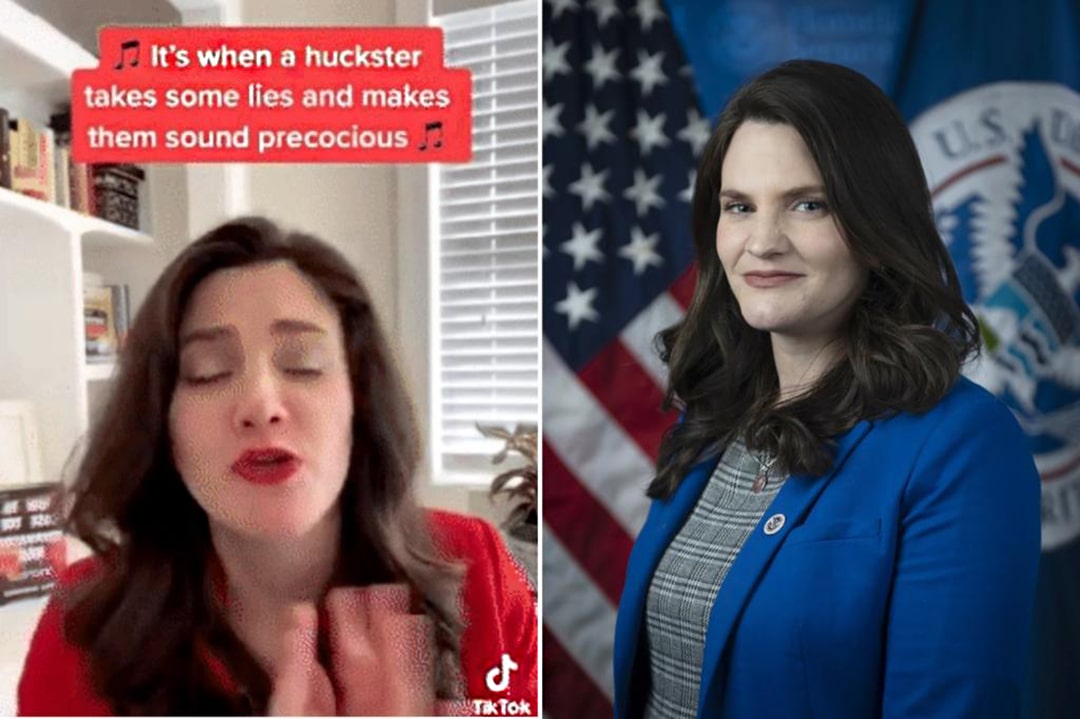
0 Comments